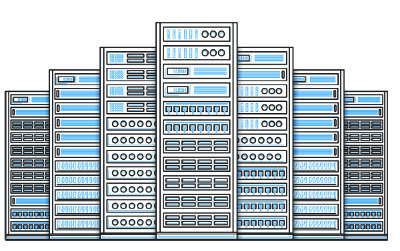How secure is the Cloud?
With nearly 70% of enterprises already using or migrating their data wholly to the cloud and around 90% expected to be fully on the cloud by 2020, you’re probably wondering how safe this will be for your organization. Things get even more interesting as more than 90% of enterprises globally are already using at least one cloud service.
The cloud offers immense benefits to enterprises who are willing to take the leap but there are definitely risks you should be knowledgeable about when doing so. The following explores key answers to the security concerns you may have regarding moving your business data to the cloud and also some best practices you should consider.
Security risks in the Cloud
The cloud is already widely considered as the ideal storage and hosting solution, and rightly so. However, as hacker sophistication rises in line with technological advancements, there are relevant risks you should be aware of. Here are some of these risks.
Loss of data or intellectual property
This concern is pressing due to the fact that around 21% of data stored in the cloud is sensitive. However, reliable cloud service providers usually keep multiple copies of your server data and utilize numerous security tools to eliminate this concern. As a result, the cloud is a much safer place to store your data or IPs.
Phishing
It’s already well established that the cloud is the new favorite target for phishing, especially as more businesses make the move. Cloud solution providers will however have safeguards in place to reduce the likelihood of success for phishing attacks.
DoS and DDoS
The Cloud is always under threat from Denial of service (DoS) and Distributed denial of service (DDoS) attacks since they usually host your enterprise’s critical digital assets. However, in Clouding.io you have an anti-DDoS filter system to protect you from any attack.
Cloud security best practices 
From storing data to deploying IT infrastructure, the purpose of the cloud can vary widely from one enterprise to another. However, there are many risks and security challenges that come with the use of the Cloud.
While most Cloud providers will operate a shared responsibility model for ensuring the security of their platform and data stored, you’ll need to ensure your enterprise is doing the most to protect its data regardless of where they’re stored. Here are some best practices to help you ensure cloud security.
Understand your enterprise security needs and the human risks involved
The first step towards ensuring cloud security is to understand your enterprise security needs and the type of cloud solution that best suits them. By identifying your security needs and the risks involved with moving your data or keeping it in the Cloud, you’re able to plan ahead and make more informed decisions.
Use strong passwords
Weak passwords essentially place your entire cloud infrastructure at risk, leaving you at the mercy of cyber criminals. Using a strong password limits that likelihood of hackers using brute force to crack your cloud password. It’s also important to understand that this is not a one off activity but an ongoing process. You’ll need to ensure that your passwords as well as your employees’ are as complex as possible and use a password manager if you find it difficult to remember too many.
Install a firewall
A Cloud firewall can help you prevent cyber attacks by setting up a perimeter around your cloud network or infrastructure to keep cyber attackers at bay. Whether you choose to create your own or rent a firewall as a service, you can expect to benefit from a reliable perimeter for your Cloud.
Use cloud malware protection
As zero-day malware attacks on the cloud continue to rise, the importance of staying ahead of hackers cannot be overstated for your enterprise. Using a cloud malware protection service will not only prevent a malware attack but also stop it from spreading in the event of a successful attack.
With so many endpoints to consider and work with nowadays, you’d also need to ensure that these are being scanned to prevent malware from spreading through them.
The bottom line: what next?
When it comes to data security, it is well established that your on-premise data is far more likely to get hacked than your cloud storage. As technology continues to advance and cyber threats evolve, cloud service providers will continue to be better positioned and equipped to respond to these threats.
If you’re still wondering whether to move to the cloud or not, you definitely should. The cloud offers more opportunities to not only scale your storage solutions rapidly but also to protect your sensitive data. Request a demo today to experience first hand how the cloud can improve your business solutions.




Leave a Reply